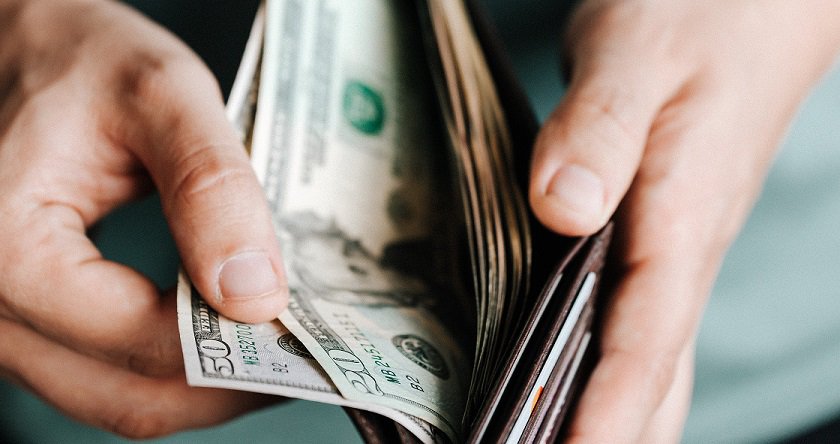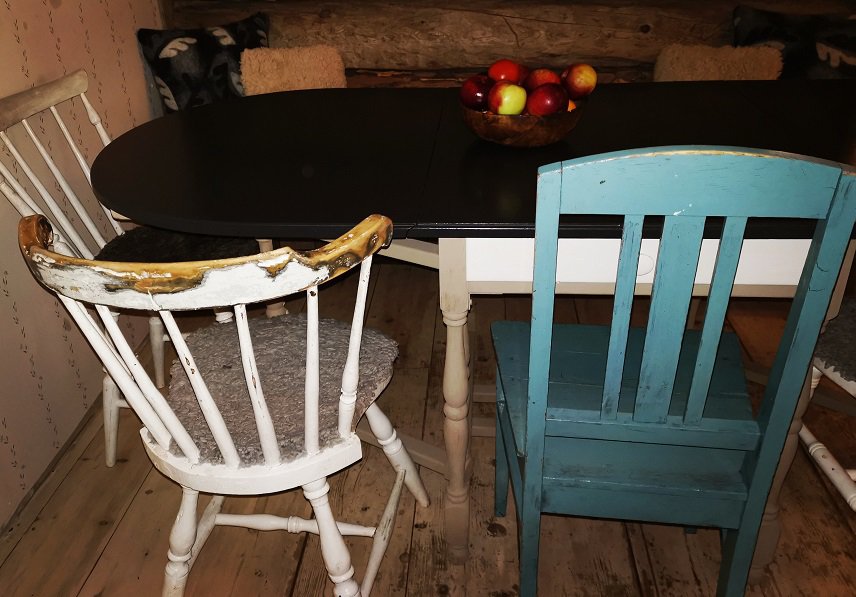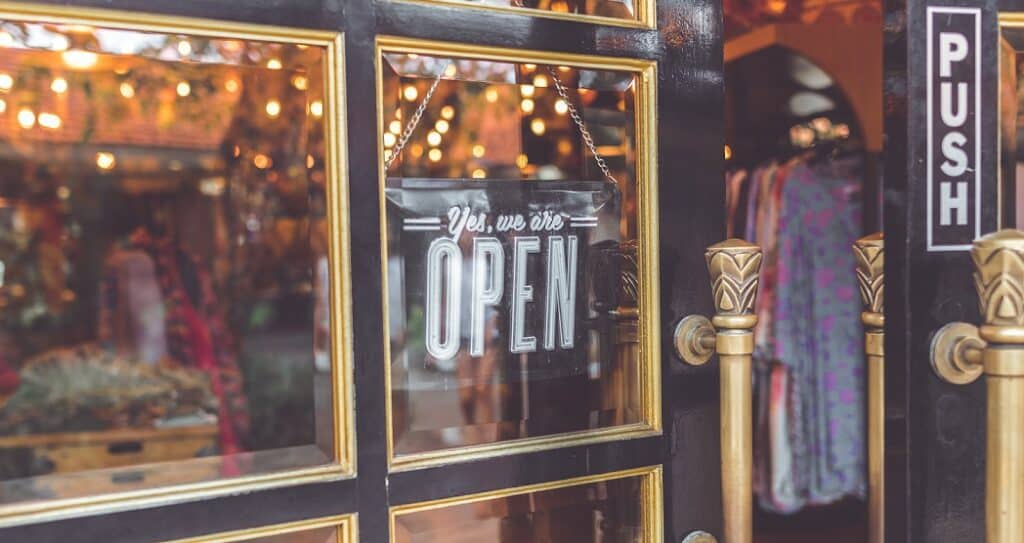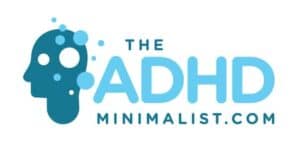
“Consumption is the sole end and purpose of all production,” Adam Smith – The Wealth of Nations – 1776.
I often hear concerned citizens asking what would happen if everyone became a minimalist. They are worried about the effects of minimalism on our economy.
I will admit that this is a legitimate concern, but nearly everyone I talked to, read about, or emailed on this topic was missing two very important points! Striving to waste less does not directly translate into spending less, and If everyone became a minimalist it would be a gradual process spanning decades! The economy would have time to adjust.
Will Minimalism Hurt The Economy?
At first glance, it may seem that Minimalism could ruin the economy. Sectors of the economy could be affected short-term If an extreme number of people became minimalists in a short span of time. Long-term, minimalism will not have drastic effects on the economy. The economy will adjust just like it always has in the past. Businesses will begin to produce high-quality goods and services that are sought after by minimalists.

Understanding Minimalism
In order to understand if Minimalism will ruin the economy, we must first define what Minimalism is.
The definition of Minimalism is, ‘’a style or technique (as in music, literature, or design) that is characterized by extreme spareness and simplicity’’ according to Merriam-Webster.
As with most things in life, there is a range of simplicity in the minimalist movement. On one end of the spectrum we have people living out of a backpack and Dave Bruno’s 100 thing challenge; on the other people like myself and Joshua Becker advocate Family Minimalism.
Family Minimalism is a form of minimalism that takes the whole family into consideration. Family Minimalists will automatically have more things because they have more people in their households.
I found that having less in our home automatically made me a better parent. I am no longer frustrated with my kids for huge piles of toys on the floor which my kids (who have ADHD) could not begin to sort or put away without becoming overwhelmed.
We now have fewer toys so it’s not possible to create such an extensive toy mess! My kids kept the toys that they actually care about and play with, which automatically caused them to take better care of their toys and be more likely to put them away.
Living out of a backpack and Family Minimalism are two vastly different approaches to the minimalist movement. What stage of your life you find yourself in will directly affect how you implement minimalism in your home.
Minimalists buy the items they need. That could include a massive budget for renovating their home, supplies for their business, or a riding lawnmower for their yard as long as they don’t have to go into debt to buy it.
They often spend more money, than the average person, on items of high quality. Buying fewer items allows minimalists to spend extra money on quality.
Minimalists often emphasize spending money on nonmaterial goods like concerts, travel, educational courses, and gym memberships.
When giving gifts minimalists are more likely to give an experience than a physical item.
They may treat their friend to dinner at their favorite restaurant, take their nephew to the movies on his birthday, take their daughter rollerskating, or buy all the ingredients for their niece’s favorite dessert and spent time teaching her to make it.
Minimalists are not necessarily spending less money than other people their age, but they are more cautious and more particular about what they buy.

Striving for Zero waste is not the same as striving for zero spending!
There is a trend among minimalists to strive for Zero Waste. I believe this concept is often confused, by those uninformed about the minimalist lifestyle, with striving for Zero Spending!
Some Minimalists join the movement to help the environment and to create a sustainable future for our children and grandchildren. Often these minimalists strive to live a life of Zero Waste.
This is an admirable pursuit, that affects all their choices about what products to consume. For Example, some Zero Waste Minimalists won’t buy products that are packaged in plastic (unless the plastic is recycled), or refrain from buying items that they can not dispose of in an environment-friendly way.
When they buy clothes they buy high-quality clothing that they plan to wear out!
Striving for Zero waste doesn’t mean that you quit buying food, consumables, clothes, or other household goods. It does mean that you do your research before you buy, choose quality over quantity, and plan to wear out, recycle, or donate items when they no longer serve their purpose.
In many ways, this kind of lifestyle is better for the local economy. Often people conscious of the environment chose to buy local goods that haven’t been transported halfway around the world. This may stimulate the local economy, but have a negative effect on foreign companies who export goods.
They don’t as the Swedes say ‘’Slit och Släng’’ or buy low-quality goods that are quickly broken/worn out which have no second-hand value.

The economy will naturally be given time to adjust
Giving the economy time to adjust is similar to the metamorphosis that the restaurant industry went through in the past ten years.
I work at a restaurant. It’s a restaurant that only accepts bookings made in advance. We don’t even have online booking! If you want to book a dinner you have to do it the old-fashioned way, and yet at certain times of the year, we are fully booked.
Thirteen years ago when I started working at this restaurant I was seldom requested to cook vegan dishes. We made our fair share of vegetarian, pesco pollo vegetarian, and lacto ovo vegetarian dishes, but vegans were few and far between.
Over the years I watched the vegan lifestyle become increasingly popular. My fellow cooks and I had to learn to make new recipes.
The first few vegans we cooked for were probably disappointed with their food. None of us thought that veganism would catch on and we weren’t all that inspired to become vegan master chefs when we only cooked for two vegans a year.
Putting things off didn’t help. There seemed to be more vegans every year! We were finally forced to accept that making vegan food on a monthly basis was the new norm! We bought some vegan cookbooks and started learning!
These days we cook for vegans every week. We needed to adjust and be flexible as our customers changed. We had to change with them if we wanted to stay in business!
It’s the same with minimalism. It’s not possible for 100% of the world’s population to wake up one morning, brush their teeth, and have a mass epiphany that they are immediately morphing into hard-core minimalists!
Even when an individual decides to become a minimalist he/she usually takes his/her time to begin sorting and discarding their life’s worth of possessions.
Most minimalists are not made overnight!
Just as I adjusted and learned to cook vegan meals over the last 13 years the economy will adjust as well.
I became a minimalist because it helped my son’s ADHD.
I reluctantly began decluttering, but somewhere along the way, I discovered the amazing benefits of minimalism!
I found I am happier in a minimalist environment, and I won’t go back!
Business owners can either stick their heads in the sand like I did when faced with vegan cooking, or they can begin to change with the times. Even now, they can start adjusting their products making them higher quality!
Minimalism will become more prevalent because it’s good for the environment! It makes individuals feel they are making a difference, it gives our brains a rest from continually registering all the items in our environment, it makes people happy, it saves you time and energy, and it reduces ADHD symptoms!
If minimalism is the future then more expensive, long-lasting, higher quality products with extensive guarantees are the future
If I was a business owner I would begin adapting now!

Consumption vs Consumerism!
Misunderstanding the meanings of the words Consumerism and Consumption can lead to confusion about Minimalism and the economy.
‘’Consumption is defined as the use of goods and services by a household. It is a component in the calculation of the Gross Domestic Product (GDP). Macroeconomists typically use consumption as a proxy of the overall economy. When valuing a business, a financial analyst would look at the consumption trends in the business’ industry.’’
Consumption – Definition, corporatefinanceinstitute.com
Consumption is part of normal everyday life. We all buy food, clothes, shoes, and pay utility bills, such as electricity and water bills. Consumption is not a problem for the economy. We are all going to eat during a crisis!
It’s consumerism that poses a problem.
‘’In common use, consumerism refers to a tendency of people living in a capitalist economy to engage in a lifestyle of excessive materialism that revolves around reflexive, wasteful, or conspicuous overconsumption.’’
Consumerism Definition  Investopedia.com
Investopedia.com
It’s impulsive and excessive spending (Spending that the consumer often regrets later) that business owners and economists are worried about!
They want you to mindlessly buy their products!!!
Big businesses often don’t care about the individual they are selling items to. They just want to get rid of their surplus stock.
Banks like it when we borrow money from them and lock ourselves in debt!
If we the consumers do what is best for us by getting out of debt, starting a savings account, and only buying items that we actually need and will use then the big businesses and banks will be forced to adjust!
You won’t get out of debt overnight! For most people minimalism is a gradual process. The economy will have time to adjust!
I had to declutter over the course of a year and I gradually learned that everything I bought had to be decluttered if I didn’t have a specific reason for buying it! That motivated me to leave items I wasn’t sure about on the store shelves, and say no to hand-me-downs from friends that I knew my kids would never wear!

How business can adjust
Minimalists want to buy high-quality products! This can be good for businesses long term. It’s a great chance to improve products and let the price reflect the new higher quality!
Minimalists tend to spend more money on fewer products. Often they do their research before purchasing and they are willing to pay extra to get products that will last for years!
I often complain to my husband that I can not find a pair of jeans that lasts! The last pair of jeans I bought lasted only nine months despite the fact that I took great care in washing them correctly and hanging them to dry! If I could find jeans that looked good on me and were built to last five years I would gladly pay more for them!
Jeans feel best when you have worn them for several months! Jean that you could wear for several years would be like wearing an old friend!
Companies that have a reputation for high-quality products are at a great advantage if minimalist principles dictate the future of shopping!

How can individuals make a difference
What it all boils down to is that you and I dictate what big businesses do!
When we insist on buying the Fast Consumer Goods that companies continually spit out as they cater to our consumerist lifestyles we are not giving Big Businesses any incentive to change!
If we stop buying cheap items that we know will break soon, if we do our research before we buy and get the best quality we can afford, if we save the money we would have wasted on purchases (Purchases we later regret), then we can start to make a change!
WE CAN MAKE A DIFFERENCE TOGETHER!

Practical ways YOU can make a difference!
- Buy second-hand clothing and household items!
I have been buying clothes for my family at second-hand stores for years! I buy as much as I can from secondhand stores!
No one wants to buy used undergarments, and I am not very excited about buying used adult shoes! (The idea that someone with athletes foot could have been wearing the shoes before I did, isn’t a very appealing thought.)
- Buy Ethical clothing! We buy some of our clothing from Purnaa where workers are paid a fair wage! This is a new trend and I hope to see more clothing companies selling ethical clothing soon!
- Buy clothes that are made in an environmentally friendly way! Recently HM and other clothing companies have made collections that are better for the environment.
- Buy clothing and other items that are recycled or upcycled! This has become easier with Etsy.
- Have a trading day with your friends and swap clothes and household goods!
- Make a Facebook group for you and friends in your area to trade/sell items you no longer need! I suggest you make this a closed group only for people you know! You can always list items on FaceBook marketplace too if you don’t get rid of them right away! It’s always nice to give your friends first dibs!
- Buy items of the highest quality you can afford (When you actually need to buy them)!
- Don’t go shopping for fun! You will always buy too much!
- Make lists before you go shopping and stick to them!
- Have a No spend month or year and put the extra money in savings!
- Set up an automatic savings account that puts money in your savings account first, before you start spending on groceries and clothes for the kids!
- Borrow as many things as you can from family and friends
- Try to solve your problems in a creative way! Sometimes you can do projects, or find clothes for the kids without spending a dime! Sometimes other people need to get rid of extra materials from a construction project or hand-me-down clothes and they are happy for you to come and pick it up! You save them time!
- Spend some of the extra money you save from not binge spending on cheap items: on a concert, a night at a hotel, dinner with your other half, or support a local artist and buy a picture that you really LOVE! Money wasn’t mean to ONLY be spent on THINGS!
- Stop buying items that are made in foreign countries in unsafe ways! Many of the cheapest items in stores (especially in chain stores known for cheap fast consumer goods) are made with lead paint which is harmful to you, or made in a way that is harmful to the workers who make the products!
You can read my blog post about how harmful lead is in lipstick and other children’s products and it’s not listed in ingredients!!!! Lead can cause and aggravate ADHD!!! The Kiss of Death! Lead Lipstick can cause ADHD in children!

Conclusion
I often told my husband that I would love to spend more money on jeans if I could find jeans that were of higher quality which would be guaranteed to last longer than the cheap fast-fashion version.
The problem is that I can not find jeans that actually last! In Sweden, some companies are moving towards better quality jeans for kids that won’t wear out right away and which can be handed down to siblings, but the adult problem of finding everyday clothes that are well made, local (or designed locally), and guaranteed to last is nearly impossible.
I solve this problem by trying to find pants at second-hand stores and wearing them out, but a company that made high-quality jeans for different women’s body types would make my day!!!
There are plenty of such problems that businesses can begin to fill! Businesses adapt, like the restaurant where I work adapted to cooking vegan dishes!
I believe that the minimalist movement will gain more followers over time but as this unfolds businesses will have time to see the new trends of consumption and adjust!
Hopefully, minimalism will lead business owners towards new ideas that will help people and improve the environment!
Check out my blog posts on how to DIY a minimalist aesthetic at your house!
Rustic Minimalist Interior Design (How to DIY this style) How we decorated our 200-year-olds barn conversion!
How to create a minimalistic, monochrome bedroom with easy to use storage (A Helpful illustrated guide) How we decorated my daughters room to help her feel calm!
A Monochrome bedroom decreased my daughters stress and ADHD A decluttered Minimalist bedroom helped reduce my son and daughter’s ADHD symptoms!
Good luck!
Copyright Annie Eklöv


